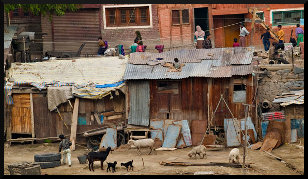Campaigns
|
Published on Mon, 2010-02-22 12:25
Two months have gone by since the Copenhagen Climate Conference that ended in failure. Through an undemocratic and non transparent process, the Copenhagen Accord was produced which was not adopted by the Conference, but only taken note of. We are of the view that the time has now come for civil society groups and social movements to make their views known on the process and outcomes of the Copenhagen Conference. |
Published on Thu, 2009-09-17 14:08
 It is now impossible to deny the existence of the causes and consequences of climate change, as the impacts that this phenomenon has produced for the planet and its inhabitants are unmistakeable. Droughts, floods and other rapidly escalating natural disasters principally affect those who are already in situations of poverty and social exclusion. |
Published on Thu, 2009-09-17 14:04
 Since June 28, Honduras has been immersed in a deep political crisis, which was the day in which the Armed Forces – backed by right-wing political parties, the business sector, the Supreme Court, the Catholic Church, and the majority of the mass media – committed a coup d´etat against the elected President Manuel Zelaya. At the moment that the coup d´etat took place, President Zelaya had an approval rating of close to 60%. |
Published on Thu, 2009-09-17 13:51
 From June 24-26, 2009, the historic UN Conference on the Financial and Economic Crisis and its Impacts on Development took place in New York, marking the first opportunity since the global implosion of the financial markets in September of 2008 in which all countries - notwithstanding their geopolitical importance or size of their economies - could participate in the search for a global solution to what is truly a global crisis. |
SUSCRIBE TO OUR NEWSLETTER


